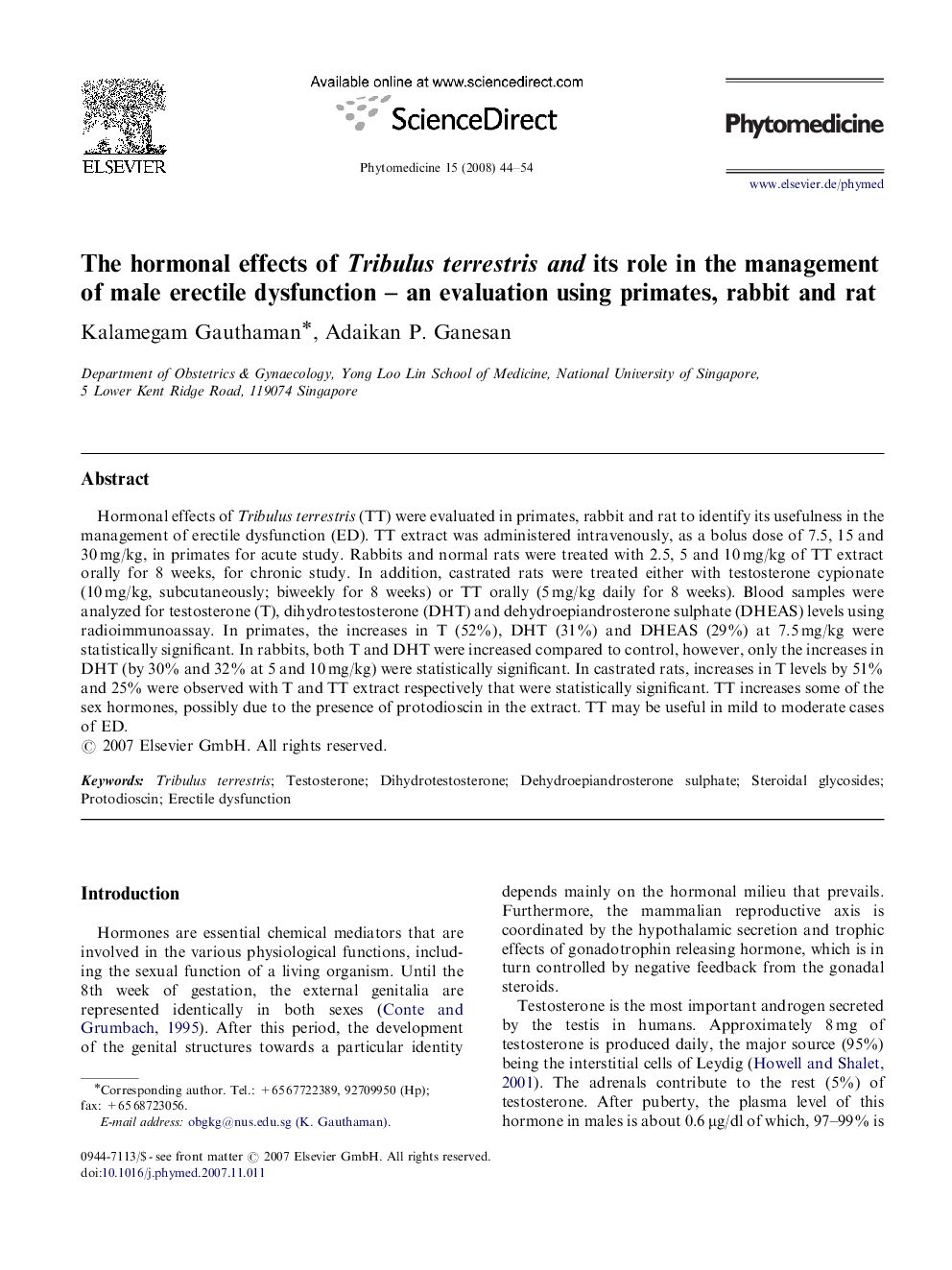| Article ID | Journal | Published Year | Pages | File Type |
|---|---|---|---|---|
| 2497549 | Phytomedicine | 2008 | 11 Pages |
Hormonal effects of Tribulus terrestris (TT) were evaluated in primates, rabbit and rat to identify its usefulness in the management of erectile dysfunction (ED). TT extract was administered intravenously, as a bolus dose of 7.5, 15 and 30 mg/kg, in primates for acute study. Rabbits and normal rats were treated with 2.5, 5 and 10 mg/kg of TT extract orally for 8 weeks, for chronic study. In addition, castrated rats were treated either with testosterone cypionate (10 mg/kg, subcutaneously; biweekly for 8 weeks) or TT orally (5 mg/kg daily for 8 weeks). Blood samples were analyzed for testosterone (T), dihydrotestosterone (DHT) and dehydroepiandrosterone sulphate (DHEAS) levels using radioimmunoassay. In primates, the increases in T (52%), DHT (31%) and DHEAS (29%) at 7.5 mg/kg were statistically significant. In rabbits, both T and DHT were increased compared to control, however, only the increases in DHT (by 30% and 32% at 5 and 10 mg/kg) were statistically significant. In castrated rats, increases in T levels by 51% and 25% were observed with T and TT extract respectively that were statistically significant. TT increases some of the sex hormones, possibly due to the presence of protodioscin in the extract. TT may be useful in mild to moderate cases of ED.
